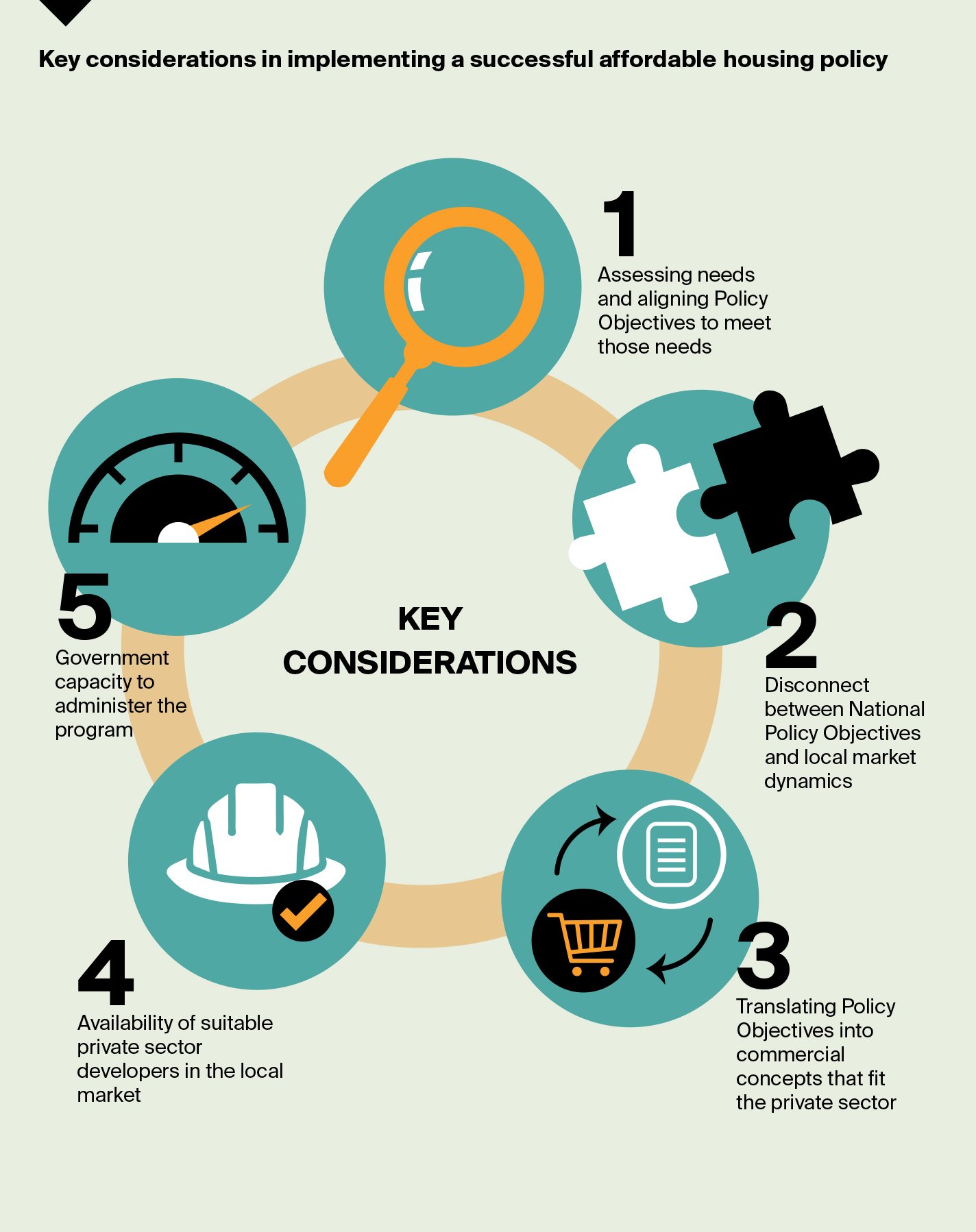
Affordable housing policy considerations
After having outlined the different private-sector collaboration models used in affordable housing projects in our last blog post, we will now focus on key considerations in implementing a successful affordable housing policy.
20 January 2021
Selecting the optimal development model is only one step in the affordable housing spectrum. By its very nature, affordable housing requires significant government involvement; in addition, rolling out an
affordable housing program on a mass scale involves translating development considerations into government policy initiatives. An analysis of international best practices provides several key considerations in implementing a successful affordable housing policy:
• Accurately assessing the low-income population’s needs and aligning Policy Objectives to meet those needs;
• Navigating the potential disconnect between national Policy Objectives and local real estate market dynamics
• Translating Policy Objectives into commercial concepts that fit the private sector
• Studying whether the required sophistication and availability of private sector developers capable of participating in affordable housing programs exists in the local market
• Ensuring that government capacity to administer the program (bureaucracy, institutions, etc.) exists or can be feasibly implemented both at the national and regional / local level

